Shared by Alexis Baghdadi
Today was the last day of my first weekend with the PDC class of 2015. Sadly, I am employed full-time this year and I can only be present in Saidoun intermittently. However, I was lucky that today included a visit to the land our Friend Fadi Kanso is looking after in Al-Babiliyye, South Lebanon.
We had met Fadi last year during the 1st PDC in Lebanon when he visited us and brought us crates of vegetables and herbs from his harvest. We became fast friends and, since then, we have had the chance to collaborate on several occasions.
The last time I visited Fadi’s land in January, it was pretty wet and muddy. After that long winter, Spring brought with it new residents to the area: thousands upon thousands of white snails clustered on range trees and any green space they can find! Fadi’s land was not spared either, but since he had created more biodiversity of plant species, he only had to deplore a few victims.
While we were there, Betty Khoury and Layal Salman set out to "de-snail" a tiny lemon tree that had been all but overrun. It certainly beats using conventional chemical countermeasures, but it seemed too labor intensive and a little futile considering the invasion around us. Besides, the pair were only peacefully relocating the snails on the other side of the road.
This has made Fadi consider applying a new permaculture principle: The problem is the solution. “I don’t have a snail problem, I’m thinking of getting some ducks to feed on them,” he said, not entirely joking.
By his own admission, Fadi is not a permacultivator in the full sense of the word, although he never uses any chemicals and only plants true seeds, practices crop rotation and introduces companion planting (such as marigolds and tomatoes, and the “3 Sisters” guild of corn, beans and squash). By his reasoning, he cannot really have a permaculture site when his land is surrounded by conventional and monoculture orchards. He also has to contend with some lingering resistance from the land’s owner.
Mostly, Fadi uses the land to experiment with new plant species (like his beloved moringa), observe them, harvest their seeds, etc. He also supplies vegetables and decorative plants to a restaurant in Beirut called Sandwich Inc. (near the Tayouneh Roundabout) – a place I highly recommend.
Apart from weathering the snail invasion, Fadi’s open-air polyculture plantations and greenhouses were safe from other diseases and pests as well – unlike his neighbors’ plots who required much higher maintenance and control.
After lunch (homemade pizza from Em Rabih and vegetables grown by Fadi), the rest of the afternoon was free so I caught a ride back to Beirut with our friend Hadi Deaibess who is also among the participants.
I look forward to coming back in a few days for the last part of the course - The design presentations.
Today was the last day of my first weekend with the PDC class of 2015. Sadly, I am employed full-time this year and I can only be present in Saidoun intermittently. However, I was lucky that today included a visit to the land our Friend Fadi Kanso is looking after in Al-Babiliyye, South Lebanon.
We had met Fadi last year during the 1st PDC in Lebanon when he visited us and brought us crates of vegetables and herbs from his harvest. We became fast friends and, since then, we have had the chance to collaborate on several occasions.
The last time I visited Fadi’s land in January, it was pretty wet and muddy. After that long winter, Spring brought with it new residents to the area: thousands upon thousands of white snails clustered on range trees and any green space they can find! Fadi’s land was not spared either, but since he had created more biodiversity of plant species, he only had to deplore a few victims.
While we were there, Betty Khoury and Layal Salman set out to "de-snail" a tiny lemon tree that had been all but overrun. It certainly beats using conventional chemical countermeasures, but it seemed too labor intensive and a little futile considering the invasion around us. Besides, the pair were only peacefully relocating the snails on the other side of the road.
This has made Fadi consider applying a new permaculture principle: The problem is the solution. “I don’t have a snail problem, I’m thinking of getting some ducks to feed on them,” he said, not entirely joking.
By his own admission, Fadi is not a permacultivator in the full sense of the word, although he never uses any chemicals and only plants true seeds, practices crop rotation and introduces companion planting (such as marigolds and tomatoes, and the “3 Sisters” guild of corn, beans and squash). By his reasoning, he cannot really have a permaculture site when his land is surrounded by conventional and monoculture orchards. He also has to contend with some lingering resistance from the land’s owner.
Mostly, Fadi uses the land to experiment with new plant species (like his beloved moringa), observe them, harvest their seeds, etc. He also supplies vegetables and decorative plants to a restaurant in Beirut called Sandwich Inc. (near the Tayouneh Roundabout) – a place I highly recommend.
Apart from weathering the snail invasion, Fadi’s open-air polyculture plantations and greenhouses were safe from other diseases and pests as well – unlike his neighbors’ plots who required much higher maintenance and control.
After lunch (homemade pizza from Em Rabih and vegetables grown by Fadi), the rest of the afternoon was free so I caught a ride back to Beirut with our friend Hadi Deaibess who is also among the participants.
I look forward to coming back in a few days for the last part of the course - The design presentations.

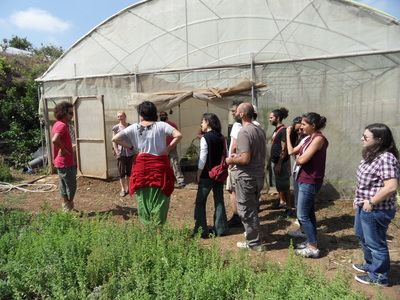
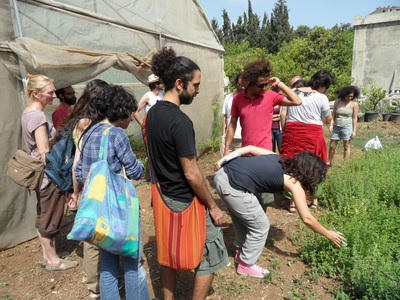
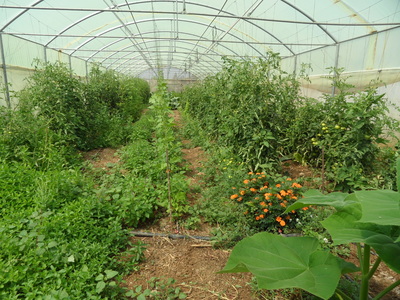
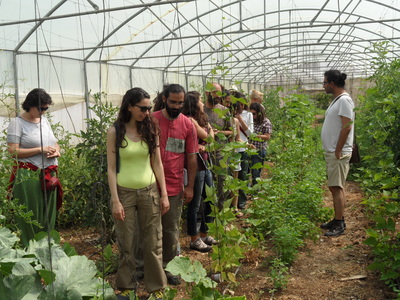
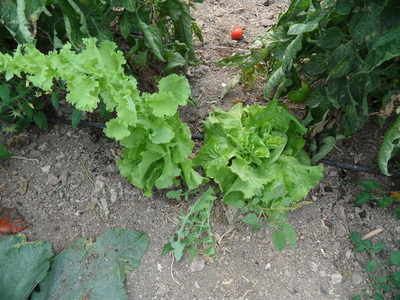
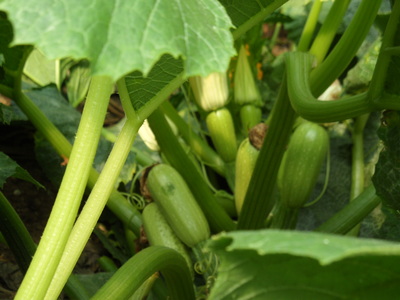
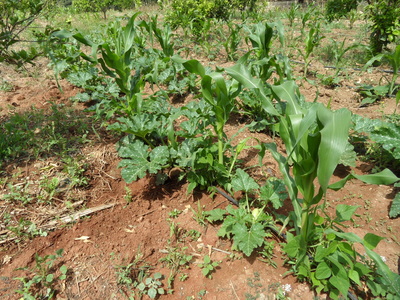
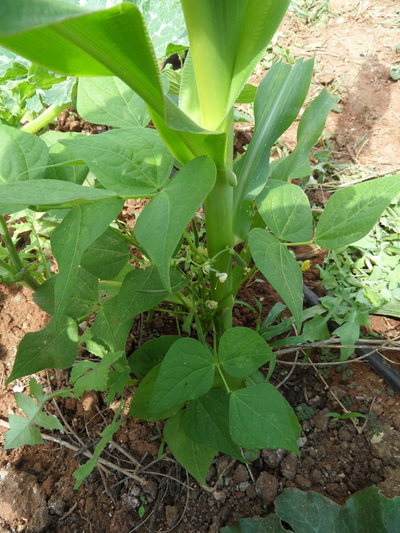
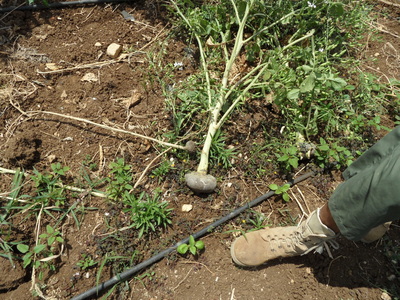
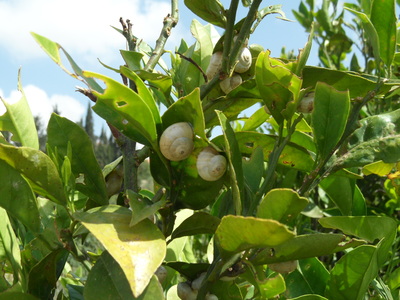
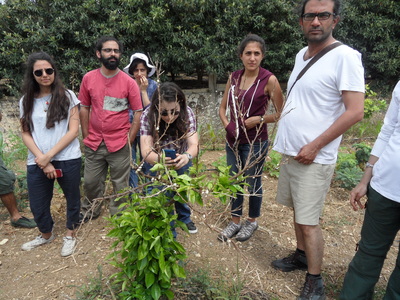
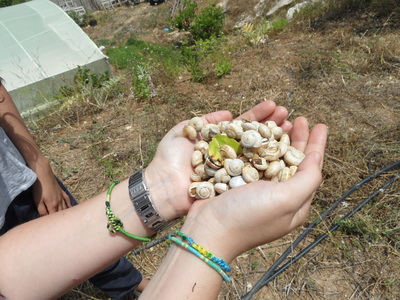
 RSS Feed
RSS Feed
